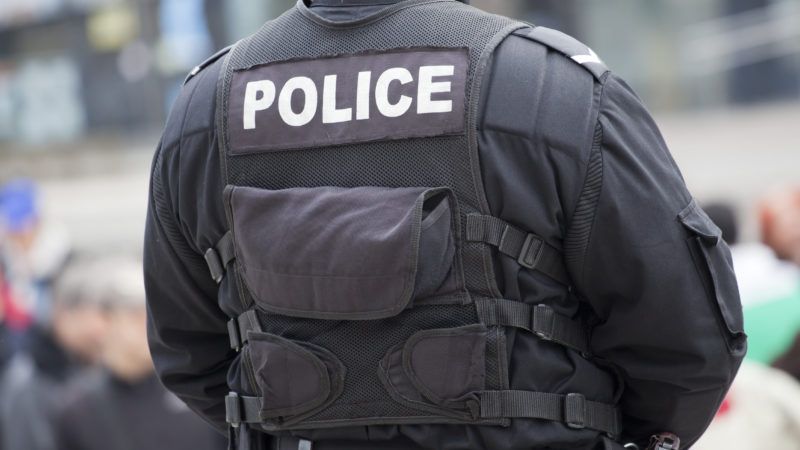Two Cops Were Given Qualified Immunity After Allegedly Stealing $225,000. SCOTUS Won't Hear the Case.
But the high court may consider other cases that could overturn the outrageous legal doctrine.

Last year, the U.S. Court of Appeals for the 9th Circuit Court decided that two police officers in Fresno, California, who allegedly stole more than $225,000 in assets while executing a search warrant, could not be sued over the incident. Though "the City Officers ought to have recognized that the alleged theft was morally wrong," the unanimous 9th Circuit panel said, the officers "did not have clear notice that it violated the Fourth Amendment."
In other words, the cops didn't have enough warning to know that stealing is an encroachment on one's constitutional rights. So it goes with qualified immunity, a legal doctrine that shields public officials from certain civil lawsuits as long as their misconduct has not been explicitly spelled out in pre-existing case law. The Supreme Court yesterday declined to hear that case, Jessop v. Fresno, along with two other cases pertaining to qualified immunity.
Jessop has all the baffling characteristics so often at the center of qualified immunity rulings. Amid the absence of a near-identical court precedent, we're supposed to believe that the officers in question could not have been aware that their conduct was constitutionally dubious.
In theory, qualified immunity protects public officials from vacuous lawsuits that might hinder their job performance. In actuality, it often allows them to get away with offenses that would land a normal person behind bars. As Reason's C.J. Ciaramella has pointed out, a recent investigation by Reuters analyzed 252 federal appellate opinions dealing with qualified immunity and found that the courts granted such immunity to police officers more than half of the time.
"Even as the proliferation of police body cameras and bystander cellphone video has turned a national spotlight on extreme police tactics," the Reuters report notes, "qualified immunity, under the careful stewardship of the Supreme Court, is making it easier for officers to kill or injure civilians with impunity."
The high court yesterday also declined to hear Clarkston v. White and Kelsay v. Ernst. "This is disappointing," wrote Jay Schweikert, a criminal justice policy analyst at the Cato Institute. "The Kelsay and Jessop cases in particular involved especially egregious applications of qualified immunity that were crying out for correction, if not summary reversal."
Indeed, the ruling in Kelsay, decided by the U.S. Court of Appeals for the 8th Circuit, is perhaps even more confounding than the one in Jessop. In that case, Melanie Kelsay claimed that a police officer—who was responding to her complaint that a man was attacking her at a community swimming pool—actually assaulted her. After she did not obey his command to "get back here," she said in the lawsuit, the officer allegedly grabbed her in a bear hug and slammed her to the ground, breaking her collarbone and knocking her unconscious in the process.
At its private conference this Thursday, the Supreme Court is scheduled to consider whether or not to hear another 10 qualified immunity cases. One of them is Corbitt v. Vickers, which I wrote about in July. In that case, the U.S. Court of Appeals for the 11th Circuit awarded Deputy Sheriff Matthew Vickers qualified immunity after he shot a 10-year-old boy while aiming at a nonthreatening dog. Vickers was in pursuit of a criminal suspect who had no relationship to the boy and who was eventually apprehended without incident.
The 11th Circuit acknowledged that the boy has required ongoing care from an orthopedic surgeon due to the shooting and has "suffered severe pain and mental trauma." But the court declined to let his mother, Amy Corbitt, sue Vickers for damages. "Corbitt failed to present us with any materially similar case from the United States Supreme Court, this Court, or the Supreme Court of Georgia," the 11th Circuit wrote, "that would have given Vickers fair warning that his particular conduct violated the Fourth Amendment."


Show Comments (45)